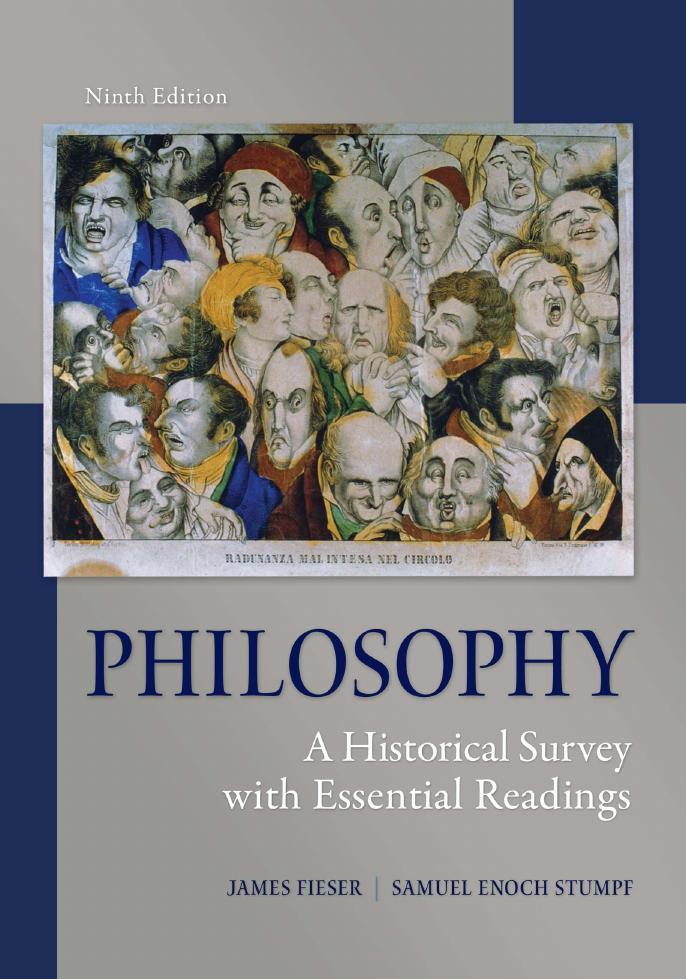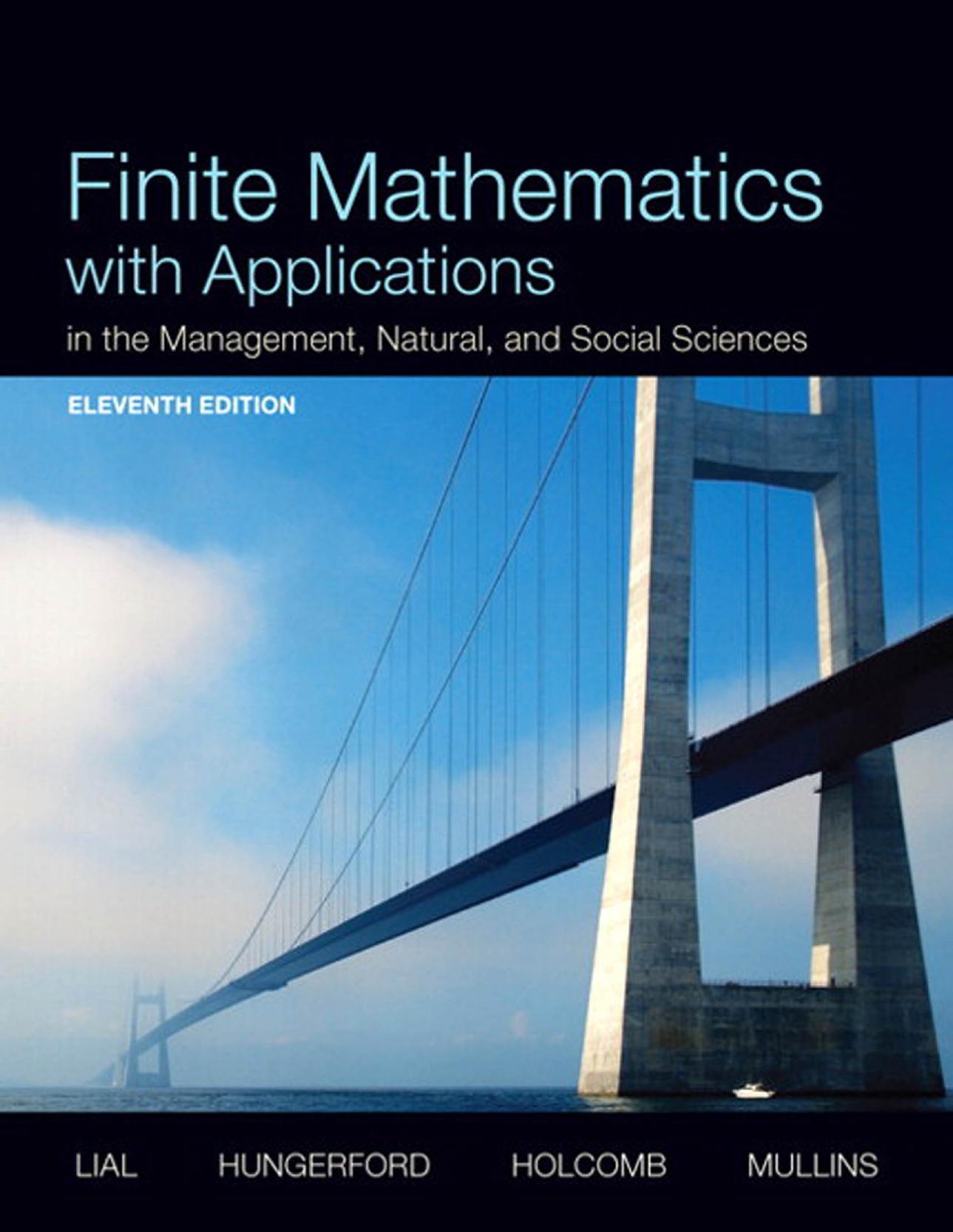Random
documents with unrelated content Scribd suggests to you:
least, too faint to be of practical argumentative utility. To our mind, the inference is simply this: Paul, about to depart on his journey to Jerusalem, appointed, for himself and his companions and the disciples at Troas, a final meeting, at which it was announced that the Eucharist would be celebrated. At this meeting, all the parties came together, agreeably to the announcement previously made, and partook of the Lord’s supper. A fitting close of a week of apostolic labor in an Asiatic city.
The next item worthy of our attention is found in the hypothesis, that, during the time Paul was at Troas, the seventh day of the week was passed by without any religious meeting occurring thereupon; and that Paul waited until the arrival of the first day, because that was the one on which the meetings of the church were regularly held. How a writer so intimately acquainted with the character and labors of St. Paul, the individual in question undoubtedly is, could draw the inference which he has, is more than we can fathom. Who, that has read the history of a man whose nervous activity drove him to dispute daily in the school of Tyrannus (Acts 19:9), and to seek every opportunity for the presentation of his gospel to the Jews in their synagogues, and the Greeks in their places of public gathering, could be induced to believe that he could remain for seven long days in the city of Troas without a solitary religious assembly, until the expiration of that time? And yet this is the very decision which we are called upon to indorse. Before we can do this, however, we ask for the proof. The answer is, it must be so, because the record contains no account of the holding of such meetings until the first day of the week.
But is this satisfactory? Do not all the circumstances of the case, as well as the temperament and character of Paul, render certain the act that such meetings were held, even, though it is not stated in so many words? Paul with a Christian church at Troas for one week, and not preach to them! Impossible. To show the writer that the mention of religions meetings in brief history is not necessary in order to prove that they occurred on a given day, or on stated days, let me call his attention to the fact, that, between the day of
Pentecost and the meeting at Troas, according, to his own showing, there were at least twenty-six intervening years; that during those years, agreeably to his view, there were thirteen hundred and fiftytwo first-days, all of which were holy time, and nearly all of which must have been honored by stated meetings on the part of the apostles; and yet, out of that whole number, he only claims to produce the record of one solitary day on which such meeting occurred. What are the facts, then? Paul probably preached every day of the seven, while he was at Troas. Do you ask why the account is not given of such meetings in the book of the Acts? I answer that the Holy Spirit was giving, through Luke, a succinct history of the more striking occurrences which transpired in their travels. The story of the first-day meeting at Troas found its way into the sacred narrative, because its importance to after generations was enhanced by the accidental fall, and the miraculous restoration to life of Eutychus, and perhaps by other facts connected with that event, of equal interest. I think that one of them was a disposition on the part of God to provide his commandment-keeping servants in succeeding generations with a passage in the life of Paul, which should forever silence the cavils of men who should undertake to belittle his ancient Sabbath, and to foist into its place a day which He never commanded. This we will further consider in our next point.
Having endeavored to establish the point that the seventh-day Sabbath was not observed at Troas, an effort is made to show that a change of time had occurred, so that Luke, in giving his account of the transactions mentioned above, treated the day as commencing and ending, not according to the Jewish method, with the setting of the sun, but after the Roman fashion, with midnight. The reader will readily discover the object to be gained by this maneuver, if such I may be allowed to call it. We had insisted that the first day of the week commenced at sunset; that Paul met with the disciples in the dark portion of that day (verse 8), preached to them during that night, and on the next morning commenced a journey of nineteen and a half miles on foot, on that which answered to the daylight portion of our Sunday. This, if true, with the majority of readers,
would have forever settled the question that Paul did not believe in first-day sanctity. A remedy, therefore, must be had. The gentleman thinks he has found one. That he has made a desperate effort to obtain it, we are compelled to admit. No man, it seems to us would ever resort to an experiment so hazardous, who did not find himself in the stress of a situation which otherwise would be utterly insupportable. With the most deliberate calculation, and in the face of authority which he himself highly honors, he has decided that the journey in question occurred on the second day of the week, instead of the first, which ended at twelve o’clock the previous night. Well, suppose we admit, for a moment, that this was true; what then? The Sunday is thereby rescued from profanation by Paul; but it is also true that the second day of the week is thereby honored with the meeting of a Christian church, and that it was it, and not the first, after all, which was honored by the breaking of bread during its hours.[6] So much for some of the consequences of the position, if well taken.
But now let us turn to the argument for the change. Is it really true that Roman, and not Jewish, time, is employed in a portion of the New Testament? If so, the perplexities of the situation are very great. How shall we know when to apply the one, and when the other? How can we tell precisely where the dividing line should be drawn? We hope, in all conscience, independently of the question at issue, that the writer is not correct. He seems to find the first intimation of a change in the gospels. Matt. 28:1, and John 20:19, are referred to in support of his view. Now suppose we concede for a time the point which he desires, and admit that these passages prove the use in them of Roman time; also that, as he claims, the meeting spoken of in John 20:19, occurred in the evening (Roman time), and after the coming on of darkness. This done, we inquire, Was it a Jewish day or a Roman day that was sanctified by the resurrection of Christ, and his appearance to his assembled disciples? We think that few will dispute that it was a Jewish day.
But when did the Jewish day commence? The undeniable answer is, At sunset. But when did Christ appear to the disciples, according to
Roman time, as argued? We answer, In the darkness of the evening, and, therefore, after the ending of the Jewish first day. What is the necessary conclusion? We reply, One of two things. 1. Either that the visit of Christ had no reference to the sanctity of the day on which it occurred; or 2. That it was designed to honor the second day of the Jewish week. We leave the writer in question to take whichever horn of this dilemma he pleases. If he should insist that John employed Roman time, then all which he has said in reference to the effect of the visit of Christ upon the first day of the Jewish week is emptied of all force. Never was self-stultification more complete. In his effort to escape from the paws of the Trojan bear (secular travel on Sunday), the writer has thrown himself into the jaws of the lion (no Scripture precedent for Sunday-keeping). For, if he is right in supposing that the meeting in John 20:19, occurred on the Roman evening of that day—that is, after sunset, and the coming on of darkness—then, of course, it did not transpire on the Jewish first day of the week, which had previously ended, according to his own admission, at the going down of the sun; but it actually took place after the commencement of the second day of the Jewish week.
Not only so, but the second meeting, of Christ with his disciples (after eight days), according to his own reasoning, must have fallen on the second Jewish day of the next week. And, finally, accepting his logic that the meeting of Acts 20:7, also fell on the Roman evening of the first day of the week, that precedent, so long cherished, and so often cited, is now forever disposed of, since it, too, illustrates the second Jewish day of the week, and not the first, if, indeed, it adds luster to any. But, reader, it would be neither Christian nor manly to adopt an exegesis of Scripture presented by an opponent, simply because such an exegesis would prove his overthrow. Truth is worth more than mere victory. The gentleman has made a mistake in deciding that Roman time is employed in the Bible, and that mistake has brought him to confusion. But now we propose to show that Roman time is not employed, even though in so doing we shall assist him out of his trouble for the time being. Let no one suppose, however, that the relief which we shall afford him
will be permanent, for, unfortunately for him, we shall rescue him from one death simply to deliver him to another.
The whole question turns upon the commencement and end of the Bible day. If it can be shown that it began and terminated with the setting of the sun, then, beyond all dispute, the meeting in Troas occurred at the commencement of the first day of the week, at the coming on of darkness, the only period in that day when lights could be employed to advantage (verse 8). We proceed, therefore, to our task. We have heretofore quoted from the Tract Society’s Bible Dictionary, under the article, day, to prove a general agreement that the Hebrews commenced and ended their day with the setting of the sun. In addition to this, we might refer the reader to Smith’s Comprehensive Dictionary of the Bible on the same subject. In fact, we might multiply authorities without end; but this is not necessary here. By turning to Genesis, chapter 1, the reader will find that God measured the day by “the evening and the morning” (darkness and light). He will here observe that with the ancient Hebrews the whole night preceded the day to which it belonged. Advancing to Leviticus 23:32, he will there read the command of God, that the people should keep their Sabbaths “from even to even.” But as the Sabbath was the last day of the week, and was to commence and end with the evening, he will discover that it will be necessary that all the other days should commence and end in the same manner.
Passing now to the New Testament, he will find the same custom prevailing in the days of our Lord. Nay, more; he will there obtain the authority of Luke himself, who wrote the book of Acts, for believing that Christ and the Jews followed that system of beginning and ending the day which God had inaugurated in the outset. We read in Luke 4:40: “Now when the sun was setting, all they that had any sick with divers diseases, brought them unto him; and he laid his hands on every one of them, and healed them.” By tracing back the event, as given by Luke, in its parallel, as found in Mark 1, we find that Christ was healing in the synagogue on the Sabbath day, and that he subsequently repaired to the house of Peter, and healed his wife’s mother; and that, “at even, when the sun did set,” the
Jews brought to him all those that were diseased, and possessed with devils, for the purpose of having him heal them. This, however, they could not have done on the Sabbath day, according to their views; therefore they prove that the custom was still prevalent among them of ending the days with the setting of the sun. But, furthermore, has it not been argued by the writer himself, that the day of Pentecost was coincident with the first day of the week? We think this will hardly be disputed. If it be true, however, and if the logic be sound, that the Spirit which was poured out on the day of Pentecost was designed to indicate that it corresponded with the Christian Sabbath, then we need not argue further, for no man will deny that that day was emphatically Jewish in its beginning and ending.
This army of Scripture testimony, gleaned from a history of 4000 years, if met at all, it will be necessary that it should be done by clear and emphatic statements emanating from the same source from which the authorities in question are drawn. Has the gentleman furnished any such evidence? The reader will readily discover that he has not. The only texts brought forward in support of the change upon which he insists are John 20:19, and Matt. 28:1. In reference to the first of these, it will only be required that attention should be called to the fact that, with the Hebrews, each day had two evenings. (Exodus 12:6, margin; and Numbers 9:3, and 28:4, margin.) On this point, the Bible Dictionary says: “The Hebrews reckoned two evenings in each day.... According to the Karaites, this time between the evenings is the interval from sunset to complete darkness, that is, the evening twilight. According to the Pharisees and the Rabbins, the first evening began when the sun inclined to descend more rapidly; that is, at the ninth hour; while the second or real evening commenced at sunset.” (Art. Evening.) Now let it be supposed that Christ met with his disciples somewhere between three o’clock and sunset, on the day of the resurrection, and the statement that he met with them the “same day at evening,” is at once verified, and the necessity for the supposition of a change of time disappears.
In explanation of Matt. 28:1, we cannot do better, perhaps, than to append the following comment from Albert Barnes: “The word end, here means the same as afterthe Sabbath; i. e., after the Sabbath was fully completed, or finished, and may be expressed in the following manner: ‘In the night following the Sabbath; for the Sabbath closed at sunset, as it began to dawn toward the first day of the week.’” That Mr. Barnes is right in his criticism, will become apparent when we compare Matt. 28:1, with the parallel passage in Mark 16:1, 2, where the same historic fact is introduced with these words: “When the Sabbath was past.” A complete harmony is thus preserved between the two evangelists, and all requisition for the extreme resort to the hypothesis of a sudden and unprecedented employment of the Roman system for the computation of time is dispensed with.
As it regards the objection, which is based upon the use made in Acts 20:7, of the words, “on the morrow,” we reply that it is not well taken. That it was perfectly compatible with a Jewish custom, when speaking of the daylight portion of any day from the stand-point of the previous evening, to allude to it as “the morrow,” we cite the following passages: “Then the soldiers, as it was commanded them, took Paul, and brought him by night to Antipatris. On the morrow they left the horsemen to go with him, and returned to the castle.”
Acts 23:31, 32. “Saul also sent messengers unto David’s house, to watch him, and to slay him in the morning; and Michal, David’s wife, told him, saying, If thou save not thy life to-night, to-morrow thou shalt be slain.” 1 Samuel 19:11.
In addition to the above texts, we might quote the authority of Mr. Howson, who is so justly complimented for his scholarship by the writer. He cannot be charged with leaning toward our views of the Sabbath, and, therefore, if he had any bias in the case, it would be against, and not in favor of, the position which we are trying to maintain. If there was really any force in the criticism which is offered respecting the use of the preposition and the term with which it is connected, assuredly the discriminating eye of this gentleman would not have allowed it to escape detection.
Nevertheless, he, as the writer admits, deliberately decides, while examining at length the very passages now before us, that the events there spoken of, journey and all, did transpire on the Sunday. In doing so, it follows, as a matter of course, that he did not regard the difficulty which is urged concerning the words, “on the morrow,” as one at all formidable.
Thus much by way of a brief refutation of the diversity theory for the commencing of the days of the Bible. We have seen heretofore, that, if the advocate of this theory were right and we wrong, he has lost to his cause the three precedental meetings of John 20:19, John 20:26, and Acts 20:7, since they occurred on the second, and not the first, Jewish day of the week. Let us now view the situation from the stand-point of one who believes that the sacred, instead of the heathen, method is followed consistently throughout the Scriptures. In Acts 20:7, the text which is passing under review, it is said that there was a meeting held upon the first day of the week, and that Paul preached until midnight. It now becomes important to know on what portion of the first day of the week this meeting fell. By examining the record, we find the statement that there were many lights employed in the chamber where they were gathered. We know, therefore, that the meeting must have taken place during the dark portion of the first day of the week. But as we have seen that the Jewish day commenced with sunset, the only hours of darkness which belong to it were to be found between that time and the next morning. Advancing, we learn that, having spent the night in preaching, breaking of bread, &c., the apostle devoted the daylight portion of the first day of the week to the accomplishment of a journey of nineteen and a half miles, while his companions sailed the vessel a greater distance round the headland to Assos. Here, then, is apostolic example for travel upon the first day of the week. The writer endeavored to escape this conclusion, by asserting that the meeting in question and the travel took place on the second day of the week. This view, we have met, and successfully answered. The record states that it was upon the first day of the week when they came together. It then proceeds to give a connected account of what
transpired on that day, and among other things, is found the story of Paul and his companions starting for Jerusalem. Now, if the events related did really transpire on two days, instead of on one merely, as would naturally be inferred from the context, the burden of the proof is with our opponent. We rest the matter, therefore, right here. The only attempt which he has made has been a complete failure. That he thought it was the best he could do under the circumstances, we doubt not.
There remains now no item of difference between ourselves and the writer in the Statesmanwhich should occupy us longer. For, between him and myself there is no room for dispute respecting the morality of traveling on the Sabbath, since, according to his own confession, the object which Paul had in remaining at Troas was that of a good “Sabbath-keeping Christian,” who was unwilling to violate the sacredness of holy time by the performance of secular labor. Here, then, we pause. As we do so, we appeal to the judgment of the candid men and women who have read the criticism of our friend and our reply thereto. Did Paul conscientiously regard the first day of the week, while traveling on foot nineteen and a half miles upon it, and did Luke and his six companions, in sailing a much greater distance on the same hours, transgress the law of God, and ignore the example of Christ; or, did they look upon the first day of the week as one which God had given to man for the purposes of labor and travel? If you still decide that it was holy time, you must be able to reconcile their action with this theory. This, however, you can never do. If, on the contrary, you shall determine that they treated it as a secular day, then it remains so still, for its character has not changed from that day to this.
STATESMAN’S REPLY.
ARTICLE SIX
TESTIMONY OF PAUL AND JOHN TO THE FIRST-DAY SABBATH.
Two important portions of the inspired records remain to be considered. The first of these reads as follows: “Now concerning the collection for the saints, as I have given order to the churches of Galatia, even so do ye. Upon the first day of the week let every one of you lay by him in store, as God hath prospered him, that there be no gatherings when I come.” (1 Cor. 16:1, 2.)
From this passage it is clear that the churches of Galatia, as well as the church at Corinth, or that Christians generally, were required to set apart a proportion of their worldly goods, as God prospered them, for benevolent purposes. It is also clear that the act of setting apart the required proportion of means was to be performed statedly, every week, on the first day of the week.
Whatever may be the correct interpretation of the words, “lay by him in store,” enough is beyond all doubt and agreed upon by all, to show that the first day of the week was regarded by the apostle and the Christian churches as a special day, and one more fitting than others for the benevolent and religious duty enjoined.
The phrase rendered in our version “by him,” is unquestionably an idiomatic Greek expression for “at home.” (Compare Luke 24:12, and John 20:10.) And even if we understand this phrase to be connected with the word rendered, “in store,” which is a participle signifying “treasure up,” the proof of first-day sacred observance is still clear
and strong. But the true connection of the words, “at home,” is with what precedes. “Let every one place or devote at home.” Place what? The answer is not hard to find—a proportion of the weekly earnings; a suitable part of what God in his bounty had given. When this proportion was separated by each Christian at home, from the rest of his weekly earnings, it was to be treasured up. But where? This is the important question. Where was the money each Christian set apart at home on the first day of the week, from his weekly receipts, to be kept in store? It appears that this treasuring up was not at each Christian’s home:
1. Because the phrase, “at home,” grammatically connects, not with the word “treasuring,” but with the preceding verb. This verb does not mean “lay by,” but “lay,” or “place.” The preposition rendered “by” is part of the phrase, “at home.” If it is insisted that the idea of treasuring in store is in the word rendered “lay,” then we have this tautology: “Let every one place in store or lay by at home, placing in store.” Paul did not write in this way.
2. The first day of the week must have offered a special facility for doing what was required. True, if nothing more is meant than laying by at home, even that marks the first day with distinguishing honor. But the placing or putting of God’s portion by itself; separated from the remainder of the receipts of the past week, on each first-day, in each Christian’s home, was in order to something else, for which the first day alone gave opportunity. On that day, as we have learned from Acts 20:7, and other portions of Scripture, Christians were accustomed to meet for public religious services, and at these public gatherings, each Christian put into the treasury of the church what he had set apart at home from the rest of the gains of the week.
3. The most conclusive argument, however, is drawn from the end that Paul desired to accomplish. He states expressly that his aim in giving his directions was to avoid the necessity of gatherings or collections when he should come. The force of this consideration is evaded by explaining the apostle’s words as meaning “small collections.” But if every Christian had his money laid by at home,
whether it were much or little, the “collections” would still have to be made. Each Christian, it is true, would have his sum already made up, and would need to make no personal gathering. But the apostle’s word is much more naturally and fittingly applied to collections on a larger and wider scale. And to effect the apostle’s end, and avoid such collections at his coming, the Corinthians, like the Galatians, were to make a collection every Lord’s day, of what each one at home had set apart or placed aside from the proceeds of his business during the preceding week. In no other way would the moneys needed be in perfect readiness for the apostle. If left in the hands of individuals scattered around, there would be uncertainty about the apostle’s receipt of them, and there would still be trouble in connection with collections on his arrival. But with the moneys already gathered, at the regular weekly meetings, into the common treasury of the church, and there waiting his coming, his aim is satisfactorily accomplished.
The only remaining passage is Rev. 1:10: “I was in the Spirit on the Lord’s day.” It has been admitted by opponents of the first-day Sabbath, that if, by the Lord’s day in this passage, the first day of the week is meant, their cause is lost. And lost it is; for no other day can be meant. Three interpretations have been given of John’s words:—
1. By the Lord’s day is meant the day of Judgment. Wetstein, in his elaborate edition of the Greek New Testament, in the year 1752, first advanced this view. His comment is; “Hunc diem judicii vidit in spiritu; i.e., prævidit representatum.” “John saw in Spirit the day of Judgment; that is, he foresaw it represented.” The phrase, “the day of the Lord,” does mean in the Scriptures the day of Judgment. But that phrase is different from the one here employed. The literal rendering of the former is, “the day of the Lord.” The literal rendering of the other is, “the dominical day.” This was not a day foreseen, but a day on which John was in the Spirit—a day of weekly recurrence which the Lord claims as his own, as he claims the dominical supper.
2. By the Lord’s day, it is maintained again, is meant the seventh-day Sabbath. In support of this view it is said that the phrase employed by John corresponds with such Old-Testament expressions as “a Sabbath to the Lord,” and with the Saviour’s language: “The Son of man is Lord even of the Sabbath.” But the very fact that the seventh day had a well-known and distinctive name by which it was always designated, is strong presumptive proof that this new and unusual phrase used by John cannot apply to it. It would be most natural to suppose that some other day is meant, and this is clearly proved to be the fact.
3. The phrase, the Lord’s day, was the common expression for designating the first-day Sabbath from John’s time onward. As the meal which the Lord hallowed as his own was called the Lord’s supper, so the day hallowed by the Lord’s resurrection, by his repeated meeting with his disciples after rising from the dead, by the descent of his Spirit, by the weekly religious assemblies of his people with their communions, preaching and hearing the word, prayers and almsgiving, was properly termed the Lord’s day. It has been argued on the other side of the question that the Lord had a day, and but one in the week, called specially his own. But as has been shown, Jesus himself, after his resurrection, paid no regard to the seventh day. His disciples did not observe it. It could not, therefore, have been the Lord’s day. On the other hand, Jesus did honor the first day, and the Christian churches everywhere did the same; and thus this honored day is the only one of which John could speak when he said he was “in the Spirit on the Lord’s day.” By this name, as will be seen in our next article, the first day of the week was known in the early church.
A REJOINDER.
“TESTIMONY OF PAUL AND JOHN TO THE FIRSTDAY SABBATH.”
With no small degree of interest we have perused the article entitled, “Testimony of Paul and John to the First-day Sabbath,” The two texts which it brings forward in defense of the theory of a changed Sabbath, are regarded by the friends of that theory, generally, as among the strongest of its supports. The first of them (1 Cor. 16:1, 2), we had assailed, and adduced a criticism, from the pen of Mr. J. W. Morton, which was of great importance. In it, the very stronghold of the Sunday argument had been fearlessly attacked, and, to our mind, carried beyond all question. The writer whom we quoted presented twelve versions and translations, all of which clearly sustained the position that the expression, “by him,” was equivalent to the term, “at home” If this were true, then beyond all dispute the Sunday argument had been denuded of all its strength, provided it ever had any; for the support of its logic was the assumption that the transaction brought to view in this text was to take place in the respective assemblies of the saints.
It is, therefore, with the most profound satisfaction that—if we rightly apprehend the remarks of our reviewer—we accept his concession of the point that the words, “by him,” do indeed answer to a Greek idiom, of which the original terms are equivalent to the expression, “at home.” This being true, we are agreed that at least a portionof the duty which Paul commanded was to be performed, not at the house of assembly, but at the dwelling of the individual Christian. In other words, he admits that the money which they were
to “place or devote” to charitable purposes, was first to be estimated and separated while yet they were in their own houses. Having conceded thus much, he reasons that the money was to be carried to the place of worship, and laid up in store, or deposited among the collections regularly made on the first day of the week. In order to sustain this view, he offers a grammatical criticism to which it cannot be objected that it is not drawn finely enough to meet the taste of the most fastidious. But the writer does not seem to plant himself so squarely upon it as we would naturally expect one would who feels that he is standing upon solid ground.
The forceofhislogicseems to be drawn from the objectwhich Paul had in view, in ordering beforehand this weekly laying aside of money for the poor saints at Jerusalem. The writer thinks that the evident reference of Paul, in the words, “that there be no gatherings when I come,” is to contributions to be taken up in the congregation when he should have reached the place. If he is wrong in this, he is wrong in all; for no one will dispute that money could[7] be “laid by in store” athome, as well as in the church, since to lay by in store, is to put in some safe and accessible place.
Right here, then, we inquire, What were the “gatherings” which Paul sought to avoid on his arrival? They could refer to but one of two things; either, first, the collection of moneys in the church; or, secondly, the collecting of them by individuals from those who were indebted to them. That the first was not the sense in which Paul employed the word, we submit is apparent, from the fact that the end to be gained by writing months beforehand, in order to prevent the taking up of a collection in the church, was not commensurate with the dignity which is given to it by so prominent a place in the sacred epistle. So far as the collection itself was concerned, it could have been brought about, unquestionably, within the space of fifteen minutes. The amount of time, therefore, which it would consume, is too insignificant to be worthy of mention.
Again, as it regards the moral complexion of the act, it will not be objected by our reviewer that it was to be avoided from any scruples
in that direction, since he believes that such collections were taken up on every first day of the week. On the other hand, taking the second view as being the one which properly expresses the facts, we find that it is in perfect harmony with the circumstances of the case, and consistent with the notion that Paul had a sufficient motive for writing before hand, as he did, concerning the collections. He was about to make a brief visit to Corinth. How long he should remain, he could not tell. While there, he wanted the undivided attention of the people to be given to religious purposes, and also that the money which he expected, should be in readiness, so that no delay might be necessary.
This, however, could not be, since, not knowing the exact time of his arrival, they would not be likely to have it on hand when he should come, unless they laid it by, weekly, at their homes. Should he, therefore, drop in upon them suddenly, they would be thrown into a confusion of mind illy compatible with the purposes of daily worship during his visit, since they would be annoyed and distracted by the necessity of gathering from this direction and that, the amounts of the weekly contribution which they had agreed to make for the benefit of the suffering saints at Jerusalem.
But once more: Having settled the point that the explanation claimed does not satisfactorily account for the mention of the subject in an epistle, while the one which we present meets the requirements of the case in every particular—since it both supplies the money, and furnishes the apostle with a body of Christians ready to listen to the preaching of the word—let us look at the matter from another standpoint.
The plan proposed by Paul could have been arrived at in but one of two ways. Every Christian was expected, either, first, to give a fixed sum, every week, of an amount equal to that which the general valuation of his property would require; or, secondly, he was, as the writer supposes, to pay in a fluctuating amount weekly, that amount to be determined by the gains or losses of the week.
We will suppose, for a moment, that the first theory is correct, and will test the plan in question thereby. While doing so, for convenience’ sake, we will employ the currency of our own time. Here is a Corinthian Christian who is worth, say $10,000. He decides that he will give, for the purposes mentioned, ten dollars per week. He has money in his purse, and nothing to prevent his doing it at any time. Being anxious to obey the injunction of Paul, he proceeds as the writer suggests. On Sunday morning he is at home, knowing just what he must contribute on that day, when he goes to church, having previously decided this point. The amount, as we have seen, is precisely ten dollars. But Paul says he must do something with it “at home,” before going to church. What was he to do with it? The writer says, “to place or devote it.” Well, he takes out his purse; from it he extracts just ten dollars. He holds it in his fingers. Now, what shall he do with it? The writer says he must “placeor devoteit.” Yes, but we inquire. What does place or devote mean, in such a connection as this? In other words, What shall he do with the money at home? Shall he take it out, and turn it over, and look at it, and put it back into his purse again, and then go to church and place it in the contribution box? We answer that this would be a solemn farce. To say, also, that having taken it out of his purse he must not put it back again, but must place it in some other pocket, and then carry it to church, is simply ridiculous. So far, therefore, as the men were concerned whose property was fixed, and whose contributions were the same, weekly, all that was said by Paul about “devoting or placing” at home was pure nonsense, in the light of the exposition offered.[8]
Now for the other class, or the men of fluctuating resources. How shall they proceed? Were they to estimate the amount of their weekly gains, and to collect in the sum, on the last day, which they were to give on the first day of the week? If so, then in their cases, as well as in those of the first order, the whole process was a mere sham, an empty and meaningless form. For they also, at their homes, would simply have to take out their money and look at it,
and then put it back and go to the church for the purpose of donating it.
But again; as we have seen, that unless the work of deciding how much they ought to give, and separating the amount for that purpose while at home on the first day of the week, was a part of the plan of the apostle, the whole suggestion had in it neither rhyme nor reason, we now turn to the only alternative left our opponent; which is the conclusion that the work indicated by the term, “place or devote at home,” was that of decidingupon, and separating the sum which they could spare to the weekly contribution.
What are the consequences of such a position? We reply, It overturns and utterly uproots the whole theory of Sunday sanctity; for the lesson taught by 1 Cor. 16:1, 2, instead of being favorable to the conception that Paul held to such a theory, shows that he regarded the first day of the week as secular time. Do you ask, How do you reach such a conclusion? I answer, It is inevitable, since the men who were acting under the instruction of Paul could not carry out the work prescribed by him without devoting at least the morning of the first day of the week to worldly business, such as that of figuring up and deciding upon the losses and profits of the preceding week, and, perhaps, collecting from outstanding matters the pro-rata amount necessary for the stated collection at the church.
Should it be objected that our suggestion is open to the criticism that the well-to-do class of Christians could have furnished their means at any time, we answer, Very true; but that, should week after week elapse without the separation, on the part of the wealthy, of the stipulated sum, it might, before the arrival of the apostle, reach figures which it would be difficult even for them to meet without perplexity. And besides, the better, easier, more natural, and we think, spiritually, the more profitable method, even for them, would be found in doing it weekly. We might offer many reasons for this conviction, had we space. Paul was giving a general rule to meet the condition of all classes. The poor comprised the larger portion of
these classes, and a principle was laid down, therefore, which, while it was better for the rich than any other, was indispensable, for the purposes in question, to the men of moderate circumstances.
Our interpretation, stated in brief, is simply this: The apostle instructed them on the first day of the week to lay by in store, at home, what they proposed to give to the saints at Jerusalem, hoarding it up until he should visit them, so that at his arrival they might put it into the common treasury; thus avoiding the possibility of being unable, on the one hand, to meet their pledges, and on the other, of being necessitated to have their minds occupied with temporal affairs, during his stay. This conception is free from embarrassments. Even were the gentleman’s translation of the passage correct, it cannot be shown to be unsound. He would read the scripture substantially as follows: “Let every one of you devote at home, treasuring up, that there be no gatherings when I come.”
To our mind, there is no tautology, even in the declaration of the apostle thus expressed, which is worthy of mention; for should the term, “treasuring up,” be interpreted to mean the same as placing or devoting at home, it is explanatory, not of the command, but of the purpose of the command. A paraphrase, which is often employed with profit in the writings of Paul, will make it all clear: “Upon the first day of the week, let every one of you lay aside, or devote to the Lord, an amount commensurate with the prosperity which he has bestowed upon you, treasuring it up, so that there need be no gatherings when I come.”
The only difference between the gentleman and myself, therefore, would be as to the place where it was to be treasured up; he insisting that it was at the church, and we, at the house of the individual Christian. We have shown that his opinion is not only unnecessary, but that it is also absurd, since it divides a transaction which Paul does not divide; and, after admitting that a part of it transpired at the home of the individual, it represents the other part as having taken place at the church; whereas, neither the church, the contribution box, nor the assembly, are so much as mentioned. And besides, it presents Paul in an attitude which certainly does not
compliment his sagacity. Mark you, it is “every one of you” that he instructs to “lay by at home.” It must therefore be, not the church collectively, but its individual members who are called upon to treasure up, or lay by in store. Just here we submit that the language employed is literal, and not figurative, and that, this being true, the moment that the saints at Corinth placed their funds in the common treasury, they violated the injunction of the apostle, which was that they should treasure it up, or lay it by in store, individually. By way of enforcing our logic, we inquire of the reader, who has doubtless contributed many times to church collections, Can you look upon money thus bestowed as in any proper sense of the term belonging to you individually? or as still treasured up or laid by in store? We think that your answer will not be equivocal. To lay by in store, as before stated, is to put in some safe and accessible place; but money once donated is not accessible to the individual contributor, since he has no longer any individual property in it.
Here we must terminate our remarks on 1 Cor. 16:1, 2. As we do so, we have disposed of the last Bible text which will be cited in the support of a supposed practice of Sunday-keeping on the part of the early church. Error begets error. Having rejected the obvious teaching of Acts 20:7, that Paul, after holding a meeting on the first day of the week, traveled nineteen and a half miles on foot, and having endeavored to explain away this journey by inferring that it took place on the second day of the week, which is not mentioned in the connection, our opponent comes to the consideration of 1 Cor. 16:1, 2, lugging along in his arms a precedent which God had clearly taught him was not designed to teach the lesson which he sought to extract from it. With this precedent, thus illegitimately obtained, he seeks to explain the language of Paul which we have been considering. By this means, he has been led to indorse error. But we need not recapitulate.
In conclusion on this point, we remark: How admirable is the providence of God! He has instructed us in his word, in regard to duty, by clear precepts, and has never told as to study its requirements simply in the light of human example. How
remarkable, therefore, that he should have condescended to so order, by his Spirit, the record which has been made in the case of every precedent brought forward, that the text and context would utterly overthrow every effort of him who should attempt to employ them in the interest of a false doctrine. On the day of the resurrection, as if to show that it was not holy time, two disciples are brought to view as traveling fifteen miles; a portion of the distance in company with their approving Lord, and the remainder of it after he had appeared to, walked and conversed with, them. In Acts 20:7, apparently perceiving the use which might be made of it, he places, in the foreground of the sacred record, the apostle, threading a weary journey on foot from Troas to Assos; and lastly, in 1 Cor. 16:1, 2, he framed the language so that it should inculcate, not the idea that the first day of the week was holy time, but, on the contrary, that it might be devoted to the secular work of casting up accounts and collecting funds.
With the exposition offered of the words, “I was in the Spirit on the Lord’s day,” Rev. 1:10, we shall make short work. What we have previously said on that passage is not sufficiently disturbed to warrant extended remark. Be it remembered, then, that, as said above, the passage proves that God has a day in this dispensation. At this point commences our divergence. We say that the term, “Lord’s day,” refers to the seventh-day Sabbath. The writer says that it refers to the first day of the week. The declaration that Christ paid no attention to the seventh-day Sabbath after his resurrection, needs no reply here, except that he was under no obligation to do so, and there was no good reason why he should, since he regarded it strictly in his lifetime, and enjoined it upon his followers. Perhaps, however, it would be well to add that he at least never did anything after his resurrection which might be construed into a desecration of it; whereas, in the case of the only first-day on which it can be proved that he ever met with his disciples, after his death, be devoted a portion of its hours to travel on the highway.
To the objection of the writer that, if the term, “Lord’s day,” in the case before us, does apply to the seventh-day Sabbath, it is strange









